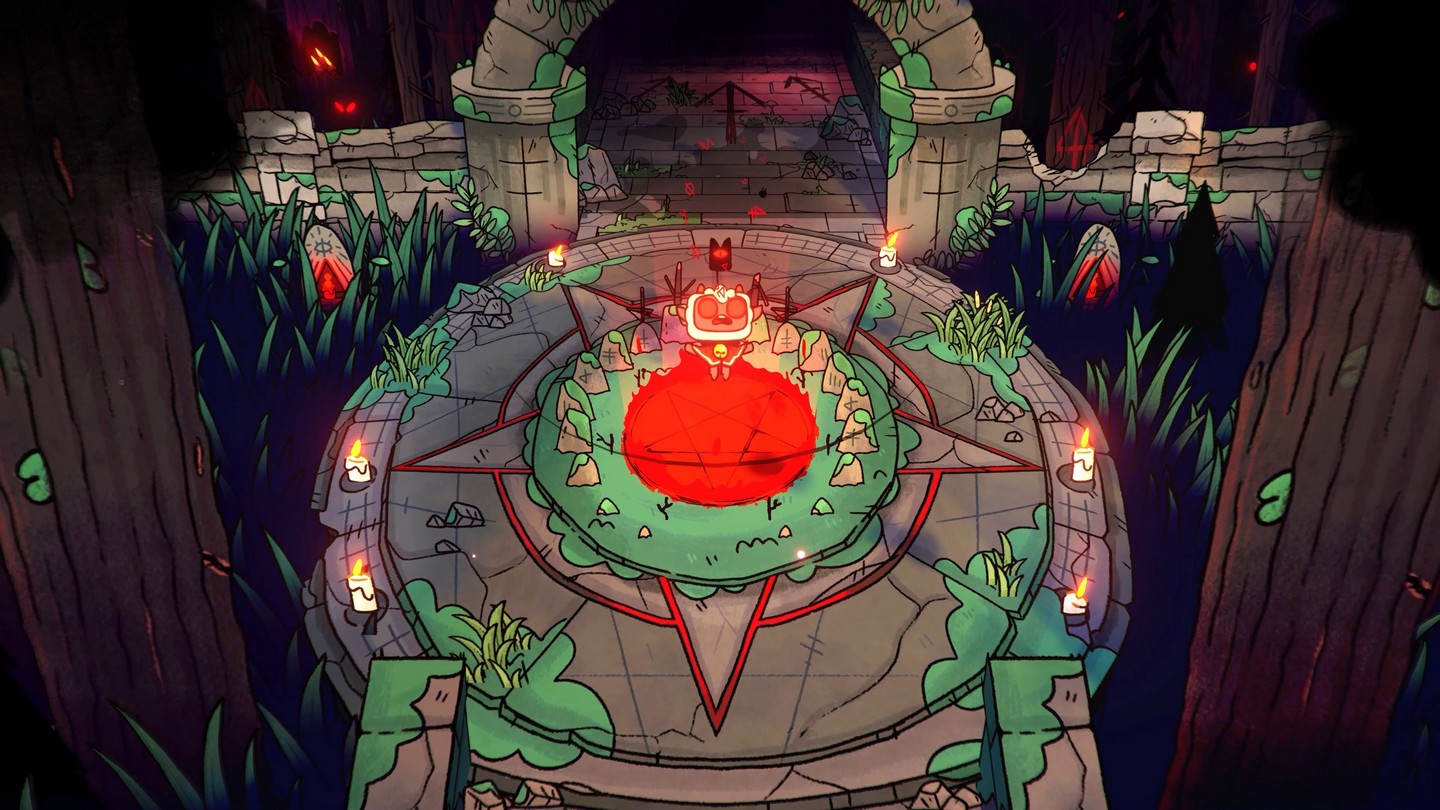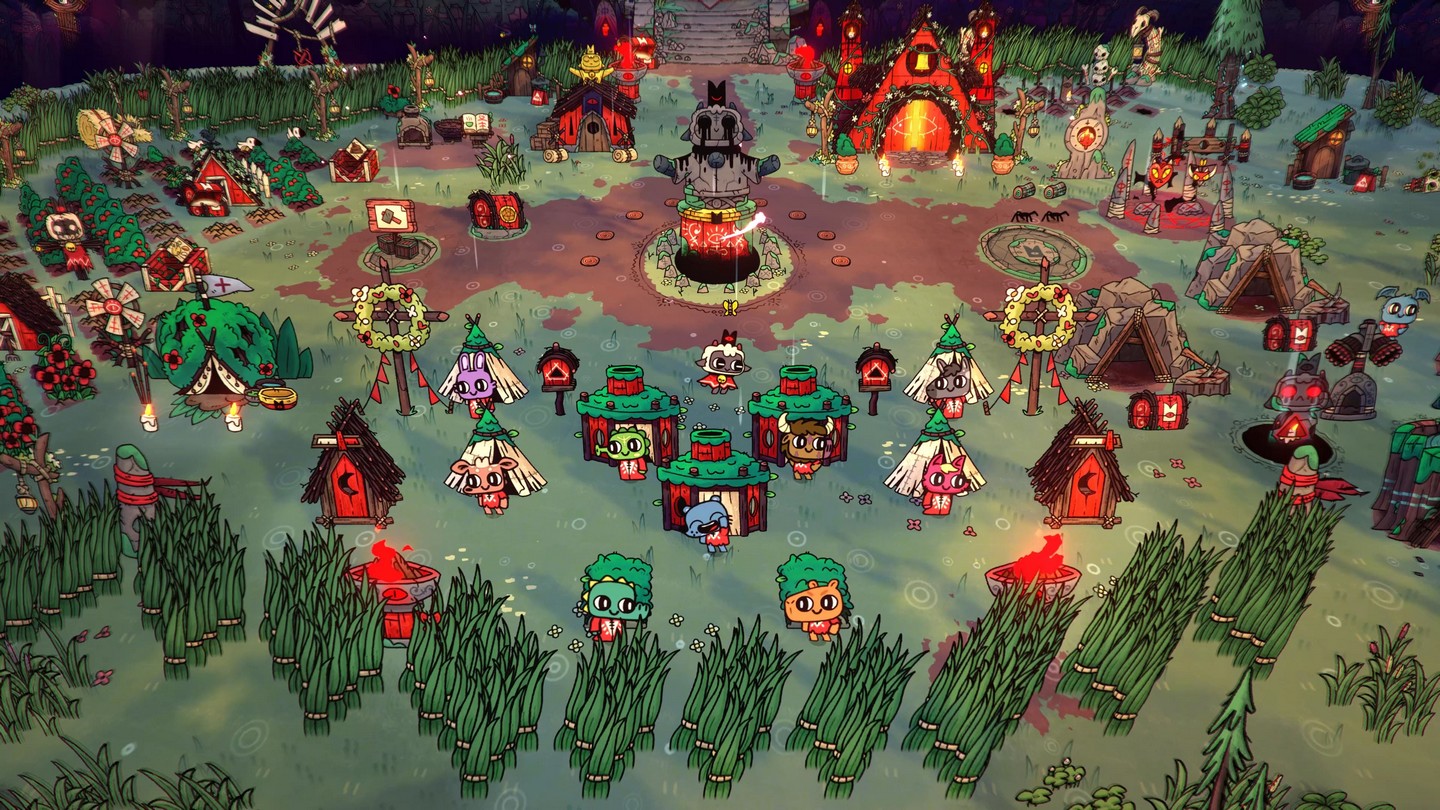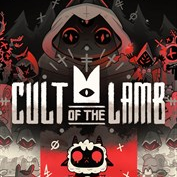COME FOR THE ROGUE-LIKE. STAY FOR THE CULT EXPERIENCE.
I’m going to do a bad job explaining this game, but stick with me. Cult of the Lamb is not rogue-like. It is a management sim where the player controls a lamb cult leader and by using social engineering and possibly some fear tactics this character runs a cult filled with various wild critters who praise an elder god. The player plays boss, priest, janitor, and chef to a bunch of characters who each have their own quirks and who can either be left to their own devices or can be asked (or forcibly told) to do various tasks around the settlement. Whether the cult is run by kindness or by fear is left to the player. That’s great but the cult members have been getting older and someone needs to cut some logs so we have wood and the other elder gods are still out there…
Well looks like this little lamb is gonna have to get violent…

PLATFORMS: PC, MAC, SWITCH, PS4, PS5, XB1, XSX
MSRP: $24.99
PRICE I’D PAY: $24.99
Now the game is a rogue-lite experience where I’m dodging and attacking enemies, sometimes saving new potential recruits, getting tarot cards that provide various effects, and collecting supplies and money to help back at the cult. Time is still moving though and one of the old cult members has died and all the effects that could have on the cult’s faith will happen while the lamb is out exploring. It’s this dichotomy that makes Cult of the Lamb great. These arguably two different concepts are wholly intertwined into one consistent experience.
I won’t sugar coat it; the rogue-lite portions of Cult of the Lamb are just okay. I don’t think there’s enough random events to make me feel like anything could happen while I’m away from the cult and there aren’t enough weapons and effects to make me ever feel like my tactics have to change drastically with each run, especially when compared to many other rogue-lites such as Rogue Legacy or Binding of Isaac. It’s the reason I say this is a simulation game first and foremost, because as an extension of the cult simulation portion of this game it is a fantastic rogue-lite. I’m out slaughtering enemies and pop-ups are telling me that members have died, buildings have collapsed, people are sick, and I have to make the decision to forfeit some of my goods and go back, or see my way through as quickly as possible to return with my spoils. Not to mention that every time night falls and I haven’t held a sermon means I delay a potential upgrade for my dungeoneering expeditions.
While at the cult I am able to do anything any member can do except pray to my totem, however I am the only one who will cook and the only one who will bury bodies. I am also the only one who will hold sermons which can be done daily and will allow me to level up my personal skills like attack power and available weapons. Upgrading my crown in the same church will allow me to make new doctrines which changes how my cult is run and opens up new rituals, some more kind than others. I always chose the kinder option despite there being no morality system because they felt as if they provided a more guaranteed positive outcome while the harsher choices provided a bigger bonus but required more hands on management, and that’s a better morality system than a simple good and evil scale. Different capes can be unlocked as well which offer changes to the dungeons, but they require four pieces of a symbol to unlock and the choices always have a loss and reward to them. Rituals either can regain faith by actions such as sacrificing members or paying tribute to recently dead members or use faith to perform certain actions like build all buildings instantly. Depending on choices made while leveling up the crown, some rituals will be locked out.
The last big system is divine inspiration which uses all the praying at the totem to level up and unlock new buildings for the cult which in turn unlocks new systems. Some things that needed to be unlocked felt useless to me while others felt so essential I hated that it took so long to unlock them. The fact I have to use materials from a building I had to earn the right to build a sleeping bag to then upgrade the sleeping bag I had to earn the right to build to a house I had to earn the right to build to then upgrade the house to a better house I had to earn the right to build that can’t collapse is slightly irritating not because of the process but because if anything collapses and I don’t have enough beds for all my members it is a knock against my faith level and having to earn the right to build the most basic of necessities is never necessarily fun. But this is the juggling act of a cult leader I suppose. Just don’t expect the farm to harvest the fruits of their labor without an upgrade because I did and that never happens.

There’s a great dice minigame, a really basic (and I mean basic) fishing game, random villager quests, and plenty of side characters to interact with as well, but they are diversions from the main hook of this game. Every time I venture out to do anything I question how well I’ve set my cult up for success and how long I can afford to be out before the next day comes. Did I engage with my followers enough to trust them to trust me? Should I have given them all gifts? Can I afford to take in another recruit right now? I like the fact the game forces me to disengage with the management aspect and trust my previous work. It gets so dark at times that I wonder if they had to go as stylized with the art as they did or it would be too realistic and grim, and this game gets pretty messed up at times as is.
That’s why I think it is a disservice to label Cult of the Lamb as a rogue-like game. That is not the point. The point is to manage a cult while working a day job that just happens to be murdering elder gods in the forest and there’s no babysitter in the neighborhood that would agree to take care of your disciples so you just trust them to not kill each other whilre you’re gone. The depth of the mechanics are to be lauded as I think it’s the best cult management game out there. It refuses to go for simple concepts like “drinking the kool-aid” to build faith and actually makes each character in the cult have their likes and dislikes and forces the player to figure out the best way to deal with the cult as a whole so as to not lose faith in the player. The art and sound design just bring this whole game together into one of the best games I’ve played this year.
Review copy of game provided by publisher.

